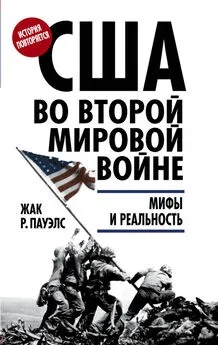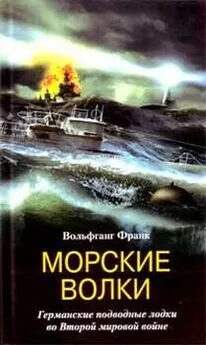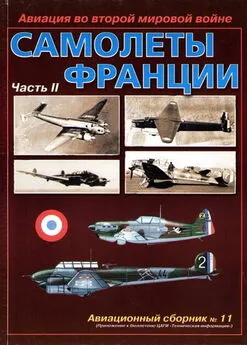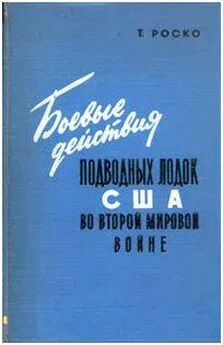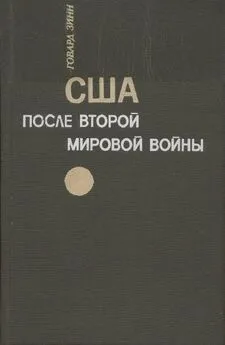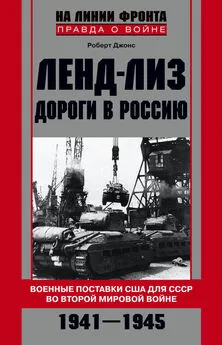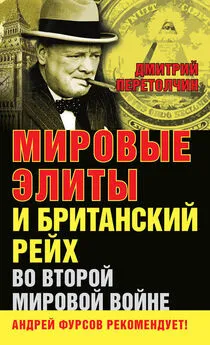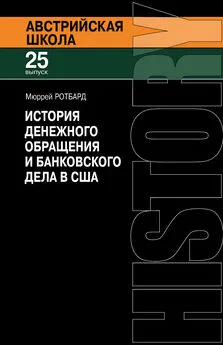Жак Р. Пауэлс - США во Второй мировой войне. Мифы и реальность
- Название:США во Второй мировой войне. Мифы и реальность
- Автор:
- Жанр:
- Издательство:ЛитагентАлгоритм1d6de804-4e60-11e1-aac2-5924aae99221
- Год:2016
- Город:Москва
- ISBN:978-5-906817-85-3
- Рейтинг:
- Избранное:Добавить в избранное
-
Отзывы:
-
Ваша оценка:
Жак Р. Пауэлс - США во Второй мировой войне. Мифы и реальность краткое содержание
В книге, ставшей мировым бестселлером и впервые публикуемой на русском языке, канадский историк Жак Р. Пауэлс анализирует подлинную роль и цели США во Второй мировой войне и открыто отвечает на неудобные вопросы: руководствовался ли Вашингтон гуманистическими мотивами, выступая против нацистской Германии, как это принято считать за океаном, и почему многие влиятельные американцы сотрудничали с фашистскими режимами, а по окончании войны столь снисходительно отнеслись к преступникам? Чем объясняются «кровавый провал» наступления на Дьепп в августе 1942 года и печально известная бомбардировка Дрездена? Почему до сих пор на Западе и в США так мало известно о битве под Москвой в декабре 1941 года и начале контрнаступления Красной армии, а высадка союзников в Нормандии 1944 года восхваляется как сокрушительный удар по нацистской Германии? И что на самом деле заставило союзников открыть второй фронт?
Автор проводит весьма убедительные аналогии между отношением американцев к «самой хорошей войне за всю историю» страны и к борьбе с терроризмом, развернувшейся после трагических событий 11 сентября 2001 года, объявленных «новым Перл-Харбором», между растиражированными клише об идеалистичных целях американцев во Второй мировой войне и их миротворческой миссией на Ближнем Востоке… История повторяется.
США во Второй мировой войне. Мифы и реальность - читать онлайн бесплатно ознакомительный отрывок
Интервал:
Закладка:
Dirty Truths: Reflections on Politics, Media, Ideology, Conspiracy, Ethnic Life and Class Power, San Francisco, 1996.
Blackshirts and Reds: Rational Fascism and the Overthrow of Communism, San Francisco, 1997.
History as Mystery, San Francisco, 1999.
Thomas G. Paterson, “Exaggerations of the Soviet Threat,” in Thomas G. Paterson and Robert J. McMahon (eds.), The Origins of the Cold War, 3rd edition, Lexington, MA, and Toronto, 1991, pp. 203—12.
Thomas G. Paterson, J. Garry Clifford, and Kenneth J. Hagan, American Foreign Policy: A History / 1900 to Present, Lexington, MA, and Toronto, 1991.
Jacques R. Pauwels, “Hitler’s Failed Blitzkrieg against the Soviet Union. The ‘Battle of Moscow’ and Stalingrad: Turning Point of World War II,” Global Research, December 6, 2011, globalresearch.ca/index.php?context=va&aid=28059.
Big business avec Hitler, Brussels, 2013.
De Groote Klassenoorlog 1914–1918, Berchem, 2014.
Mark Pendergrast, For God, Country, and Coca-Cola: The Unauthorized History of the Great American Soft Drink and the Company That Makes It, New York, 1993.
Clive Ponting, Armageddon: The Second World War, London, 1995.
Walter S. Poole, “From Conciliation to Containment: The Joint Chiefs of Staff and the Coming of the Cold War, 1945–1946,” Military Affairs, Vol. XLII, No. 1, February 1978, pp. 12–15.
Robert C. Puth, American Economic History, 2nd edition, Fort Worth, TX, 1988.
Simon Reich, The Fruits of Fascism: Postwar Prosperity in Historical Perspective, Ithaca, NY, and London, 1990.
“The Ford Motor Company and the Third Reich,” Dimensions: A Journal of Holocaust Studies, Vol. 13, No. 2, December 1999, pp. 15–17.
Simon Reich and Lawrence Dowler, Research Findings About Ford-Werke Under the Nazi Regime, Dearborn, MI, 2001.
David Reynolds, Rich Relations: The American Occupation of Britain, 1942–1945, New York, 1995.
David Reynolds, Warren F. Kimball, and A. O. Chubarian (eds.), Allies at War: The Soviet, American, and British Experience, 1939–1945, New York, 1994.
Geoffrey Roberts, Stalin’s Wars from World War to Cold War, 1939–1953, New Haven, CT, and London, 2006.
George H. Roeder, Jr., The Censored War: American Visual Experience during World War Two, New Haven, CT, and London, 1993.
Steven T. Ross, American War Plans 1941–1945: The Test of Battle, London and Portland, OR, 1997.
Mario Rossi, “United States Military Authorities and Free France, 1942–1944,” The Journal of Military History, Vol. 61, No. 1, January 1997, pp. 49–64.
Floyd Rudmin, “Secret War Plans and the Malady of American Militarism,”
Counterpunch, 13:1, February 17–19, 2006, pp. 4–6, www.counterpunch.org/2006/02/17/secret-war-plans-and-the-malady-of-american-militarism.
Keith Sainsbury, Churchill and Roosevelt at War: The War They Fought and the Peace They Hoped to Make, New York, 1994.
Anthony Sampson, The Sovereign State of ITT, New York, 1973.
The Seven Sisters: The Great Oil Companies and the World They Made, New York, 1975.
Michael Sayers and Albert E. Kahn, The Plot against the Peace: A Warning to the Nation! New York, 1945.
Ronald Schaffer, “American Military Ethics in World War II: The Bombing of German Civilians,” The Journal of Military History, Vol. 67, No. 2, September 1980, pp. 318—34.
David F. Schmitz, “‘A Fine Young Revolution’: The United States and the Fascist Revolution in Italy, 1919–1925,” Radical History Review, No. 33, September 1985, pp. 117—38.
Thank God They’re on Our Side: The United States and Right-Wing Dictatorships, 1921–1965, Chapel Hill, NC, and London, 1999.
Michael S. Sherry, The Rise of American Air Power: The Creation of Armageddon, New Haven, CT, and London, 1987.
In the Shadow of War: The United States Since the 1930s, New Haven, CT, and London, 1995.
Michael S. Shull and David E. Wilt, Doing Their Bit: Wartime American Animated Short Films, 1939–1945, Jefferson, NC, and London, 1987.
Ken Silverstein, “Ford and the Führer,” The Nation, January 24, 2000, pp. 11–16.
Christopher Simpson, Blowback: The First Full Account of America’s Recruitment of Nazis, and Its Disastrous Effect on our Domestic and Foreign Policy, New York, 1988.
The Splendid Blond Beast: Money, Law, and Genocide in the Twentieth Century, New York, 1993.
Nikolai V. Sivachev and Nikolai N. Yakovlev, Russia and the United States, Chicago and London, 1979.
N. Sivachyov and E. Yazkov, History of the USA Since World War I, Moscow, 1976.
Robert M. Slusser, “Soviet Policy and the Division of Germany, 1941–1945,” in Susan J. Linz (ed.), The Impact of World War II on the Soviet Union, Towota, NJ, 1985, pp. 107—25.
Melvin Small, “How We Learned to Love the Russians: American Media and the Soviet Union During World War II,” The Historian, Vol. 36, May 1974, pp. 455–478.
“The ‘Lessons’ of the Past: Second Thoughts about World War II,” in Norman K. Risjord (ed.), Insights on American History. Vol. II, San Diego, 1988.
Arthur L. Smith, Jr., Churchill and the German Army (1945): Some Speculations on the Origins of the Cold War, Center for the Study of Armament and Disarmament, California State University, Los Angeles, 1974.
Churchill’s German Army: Wartime Strategy and Cold War Politics, 1943–1947, Beverly Hills, CA, 1977.
Bradford Snell, “GM and the Nazis,” Ramparts, Vol. 12, No. 11, June 1974, pp. 14–16.
Robert Sobel, ITT: The Management of Opportunity, New York, 1982.
Richard W. Steele, “‘The Greatest Gangster Movie Ever Filmed’: Prelude to War,”
Prologue: The Journal of the National Archives, Vol. 11, No. 4, Winter 1979, pp. 221—35.
Alexander Stephan, “Communazis”: FBI Surveillance of German Emigré Writers, New Haven, CT, and London, 2000.
Robert B. Stinnett, Day of Deceit: The Truth about FDR and Pearl Harbor, New York, 2000.
Mark A. Stoler, “The ‘Second Front’ and American Fear of Soviet Expansion, 1941–1943,” Military Affairs, Vol. XXXIX, No. 3, October 1975, pp. 136—41.
Anthony C. Sutton, Wall Street and the Rise of Hitler, Seal Beach, CA, 1976.
Frederick Taylor, Dresden: Tuesday, February 13, 1945, New York, 2005.
Studs Terkel, “The Good War”: An Oral History of World War Two, New York, 1984.
T. H. Tetens, The New Germany and the Old Nazis, London, 1962.
Robert W. Thurston, Life and Terror in Stalin’s Russia 1934–1941, New Haven, CT, and London, 1996.
Tooze, Adam. The Wages of Destruction: The Making and Breaking of the Nazi Economy, London, 2006.
Henry Ashby Turner, Jr., General Motors and the Nazis: The Struggle for Control of Opel, Europe’s Biggest Carmaker, New Haven, CT, and London, 2005.
William W. Turner, Hoover’s FBI, New York, 1993.
Harold G. Vatter, The U.S. Economy in World War II, New York, 1985.
Milton Viorst, Hostile Allies: FDR and Charles de Gaulle, New York and London, 1965.
Agostino von Hassell and Sigrid McRae, Alliance of Enemies: The Untold Story of the Secret American and German Collaboration to End World War II, New York, 2006.
Mary-Alice Waters, “1945: When US Troops Said ‘No!’: A Hidden Chapter in the Fight Against War,” New International: A Magazine of Marxist Politics and Theory, No. 7, 1991, pp. 279–300.
T. H. Watkins, The Great Depression: America in the 1930s, Boston, 1993.
Kenneth E. Weiher, America’s Search for Economic Stability: Monetary and Fiscal Policy Since 1913, New York, 1992.
Gerhard L. Weinberg, A World at Arms: A Global History of World War II, Cambridge, 1994.
Mira Wilkins, The Maturing of Multinational Enterprise: American Business Abroad from 1914 to 1970, Cambridge, MA, and London, 1974.
Mira Wilkins and Frank Ernest Hill, American Business Abroad: Ford on Six Continents, Detroit, 1964.
William Appleman Williams, The Tragedy of American Diplomacy, revised edition, New York, 1962.
“American Intervention in Russia: 1917—20,” in David Horowitz (ed.),
Containment and Revolution, Boston, 1967, pp. 26–75.
“Empire as a Way of Life,” Radical History Review, No. 50, Spring 1991, pp. 71—102.
Allan M. Winkler, The Politics of Propaganda: The Office of War Information 1942–1945, New Haven and London, 1978.
Neil A. Wynn, “The ‘Good War’: The Second World War and Postwar American Society,” The Journal of Contemporary History, Vol. 31, No. 3, July 1996, pp. 463–482.
Wyvetra B. Yeldell, Publications of the US Army Center of Military History, Washington, DC, 1997.
Mark Zepezauer and Arthur Naiman, Take the Rich Off Welfare, Tucson, AZ, 1996.
Michael Zezima, Saving Private Power: The Hidden History of the “Good War,” New York, 2000.
Robert H. Zieger, American Workers, American Unions, 2nd edition, Baltimore and London, 1994.
Gerard Colby Zilg, Du Pont: Behind the Nylon Curtain, Englewood Cliffs, NJ, 1974.
Howard Zinn, A People’s History of the United States, s.l., 1980.
Howard Zinn on War, New York and London, 2001.
Благодарность
Трудно перечислить всех тех, кто каким-либо образом помог написанию этой книги, но некоторые из них заслуживают особого упоминания. В первую очередь среди них мои родители, бабушка, дяди и тети, братья и сестры и многие другие родственники, соседи, друзья и товарищи, которые пережили Вторую мировую войну; их рассказы об этом потрясшем планету конфликте вызвали живой интерес ребенка, которому повезло, что он увидел свет после того, как на землю пали последние бомбы. Чувство более систематического и критического подхода к истории мне в первую очередь привил мой учитель истории в средней школе небольшого фламандского городка Экло, Карлос Де Раммеларе. В государственном университете Гента мне посчастливилось слушать замечательный курс веведения в современную историю у профессора Яна Дхондта. А без профессора Майкла Катера из Йоркского университета в Торонто я не знал бы практически ничего о гитлеровском Третьем рейхе и слишком мало о Второй мировой войне. Наконец, на закате моего затянувшегося студенчества ряд политологов, экономистов и представителей других общественных наук из Университета Торонто, среди них Кристиан Бэй, Стивен Кларксон, Сьюзан Соломон, Майкл Требилкок и Каролин Туохи, познакомили меня с основными принципами политической экономии, академической дисциплины, которая в наши дни не пользуется той популярностью, которая она заслуживает. Я также хочу отметить нескольких авторов, чьи работы произвели глубокое впечатление на меня: Мюррей Эдельман, Гэбриэл Колко, Томас Кун, Рейнхард Кюнль, Джордж Лукач, Майкл Паренти и Говард Зинн. Нельзя не отметить и многих моих друзей в Европе и Северной Америке, с которым я вел, в частности, продуктивные дискуссии на такие темы, как фашизм, коммунизм, капитализм и, конечно, Вторая мировая война: Жана-Франсуа Кромбуа, Джона Хилла, Марка Липинкотта, Ханса Оппеля, Майкла Куиннаа, Говарда Вудхауса. Я также узнал очень много о Второй мировой войне от многих канадских, американских, немецких, бельгийских и британских путешественников, которых я имел честь сопровождать, будучи гидом по обе стороны Атлантики. В ходе подготовки к написанию этой книги и работы над ней я получил ценную помощь от Берта Де Миттенаре, Каролы Фингс, Элвина Финкеля, Уго Франссена, Юргена Харрера, Михила Хорна, Андреи Нойгебауер, Анн Виллемен, Си Стром, Дженнифер Хатчисон, и моего сына Давида, и моей дочери Натали. Без этих и многих других людей эта книга была бы совсем другой, а может быть, и вообще никогда не была бы написана.
Читать дальшеИнтервал:
Закладка:
